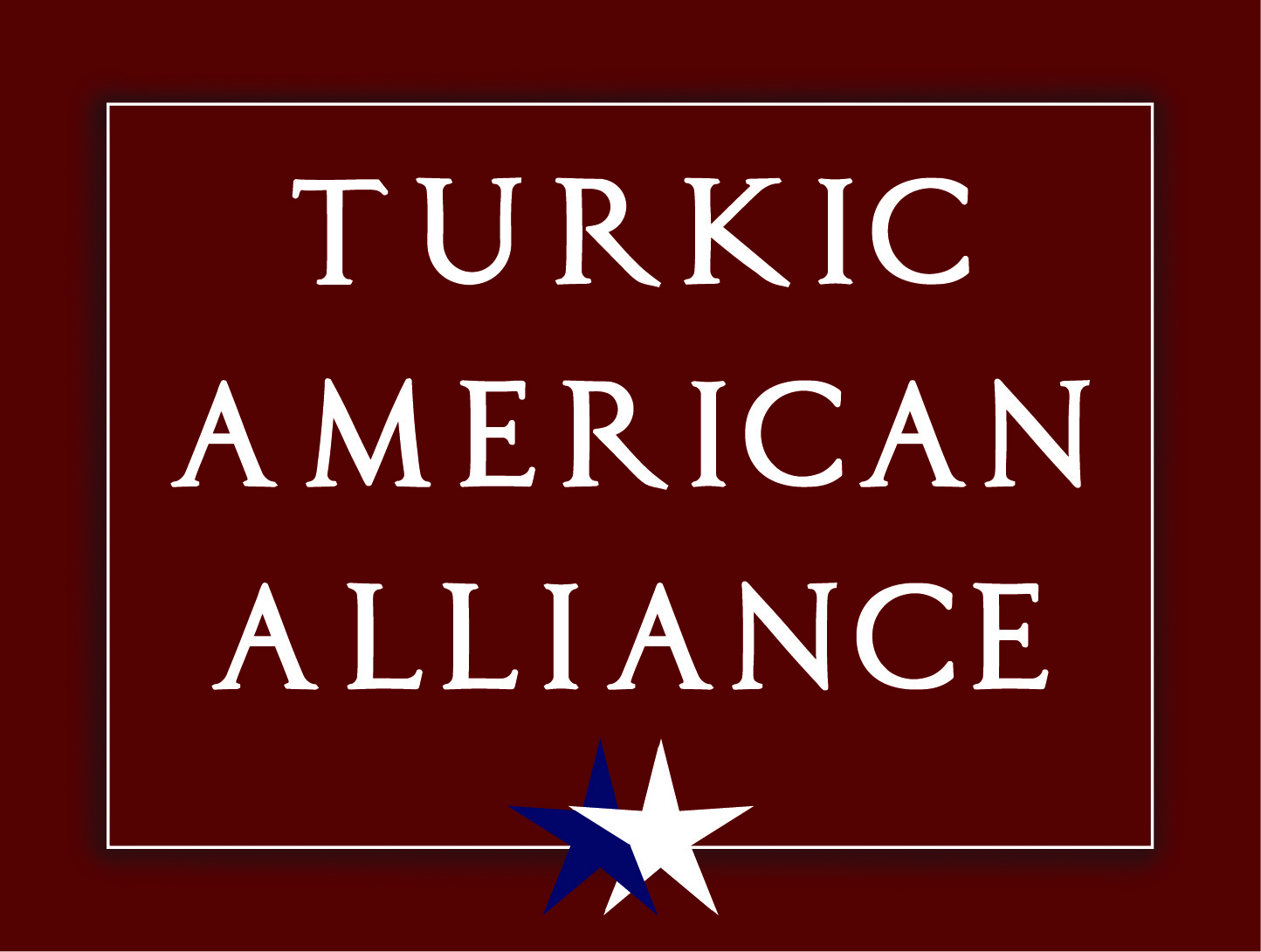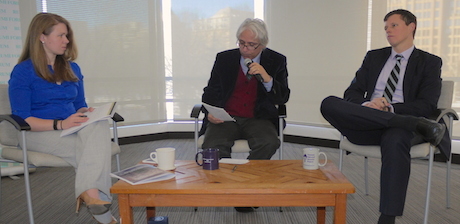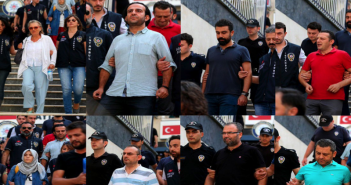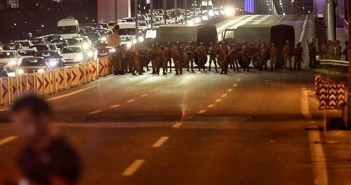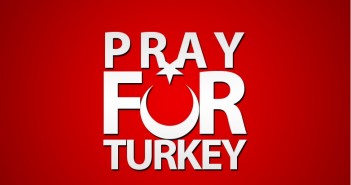On Wednesday, January 22nd, the Rumi Forum and the Truman National Security Project hosted an event entitled “Turkey 2014: Challenges and Prospects Ahead.” Panelists included Dr. İhsan Dağı and Dr. Joshua Walker. Caitlin Howarth, Director of Leadership Development at the Truman National Security Project and Center for National Policy (CNP), moderated the discussion.
Ms. Howarth opened the panel discussion by welcoming the President of the Rumi Forum, Emre Çelik, to say a few words. Mr. Çelik thanked the Truman National Security Project for co-hosting the event. The moderator next introduced the two panelists and gave them the floor.
Dr. İhsan Dağı
Professor of International Relations at the Middle East Technical University in Ankara
Visiting Fulbright fellow at the School of Advanced International Studies (SAIS), Johns Hopkins University
Dr. İhsan Dağı’s presentation offered an overview of the current political actors issues in Turkey, including the ruling Justice and Development Party (AKP) and Prime Minister Recep Tayyip Erdoğan, the Republican People’s Party (CHP), the Peace and Democracy Party (BDP), the Nationalist Movement Party (MHP), the military, the Hizmet movement and President Gül.
When the ruling AK Party first came to power in 2002, it drew on a coalition of differing ideologies and identities in Turkey and utilized styles of leadership, discourse, policies and language dramatically different than those employed today. This coalition has over time become replaced by a climate in which the fate of AKP, Turkey and government policies lay centralized in the hands of the Prime Minister. Furthermore, while the ruling party has enacted impressive economic reforms and has worked towards building significant political reforms in the areas of human rights, democracy, rule of law and accession to the European Union, these very same political reforms are now at risk, the government now seems to exhibit little hesitation in rolling back these very same reforms.
Today, the AK Party enjoys a strong synthesis of power that makes it uniquely capable of governing Turkey however it sees fit. This synthesis of power is trifold: 1)unquestionable electoral legitimacy; 2) a significant degree of religious legitimization and authority; and 3) its ability to use state power as a means of coercion to silent dissenting voices. What is in doubt is therefore not the legitimacy of AKP, but how it governs by those who elected them into power. The AK Party was once a party of change, collective leadership, democracy, and EU membership. It has now become an agent of de-democratization and of rolling back its own political reforms.
The CHP is another main political actor in Turkey. CHP desperately tries to compete with AKP, but is dragged down by what Dr. Dağı called its “baggage of Kemalism and secularism” that prevents them from forming a true alternative. In order to be so, it is critical to win over the support of the conservative right bloc that forms the AKP’s base support.
The BDP maintains only 6.5% of the popular vote, and is therefore not likely to disturb the AK Party. It is a single-issue party based on politics of Kurdish identity and is likely to build an informal coalition with AKP due to the government’s initiation of a peace process with the Kurdistan Workers’ Party (PKK). The MHP is a secularist party with a conservative constituency and therefore would not appeal en masse to AKP’s core base.
In terms of non-political party actors, the military is finally out of the picture. This is an enormously positive development—Turkey’s political actors are now able to compete with one another without any influence or expectations by the military. The Gülen, or Hizmet, movement is a social movement with political influence in Turkey and is currently in a confrontation with AKP due primarily to the December 17th corruption probe. President Gül maintains a strong popular standing in Turkey—just as strong in fact as the Prime Minister, according to Dr. Dağı. In fact, President Gül leads opinion polls as a contender in the upcoming presidential election in August.
In closing, Dr. Dağı argued that the AKP as an agent of change in the past decade has now become one of instability, uncertainty and a lack of predictability in its leadership. It has lost its ability to act rationally to political and social crises.
Dr. Joshua Walker
Director of Global Programs at APCO Worldwide
Washington, D.C. Office
According to Dr. Walker, the economic miracle of Turkey’s stability is coming to an end.
Indeed, Turkey has a habit of artfully shooting itself in the foot, and of taking one step forward and two steps back.
In terms of the big picture of the U.S.-Turkey relationship, Washington is still about 5 years behind its understanding of Turkey. Therefore, the U.S.-Turkey relationship has not been significantly altered following the events of late.
Turkey’s incredible development is not a mirage, but the institutions and infrastructure in place are certainly not as strong or stable as previously believed. AKP’s self-confidence borders on arrogance, particularly as it places blame on the role of outside actors. Dr. Walker advised Turkey to reflect on its internal problems and to acknowledge that not all of this is anyone else’s fault. Political leaders in Turkey must face themselves in the mirror for a change.
The Gülen movement is a civil society movement—it is not a political movement. This tussle therefore between the Hizmet movement and AKP is not a fair fight because it is not one between political parties. In the AK Party there are certainly a few rotten apples in the barrel, and it is important to prevent the entire barrel from rotting. The international community can’t afford to have Turkey naval gaze while Syria burns and problems mount in Iraq and in other neighboring countries. Could Turkey itself become a source of instability?
Dr. Walker describes himself as an eternal optimist—will a new, emerging generation learn from the mistakes and failures of past political parties? Will it work on strengthening state institutions and democratic reforms? Looking towards the republic’s centennial year in 2023, will Turkish women and youth have become politically mobilized? Dr. Walker concluded that it is not so much the end game as it is the process that truly matters for Turkey in its current political struggle.
In the Q&A session, questions were raised concerning the next generation of leadership in Turkey, the likelihood of AKP losing the Kurdish vote, the roots of the Hizmet-AKP struggle and the prospects for Turkey’s candidacy to the European Union.
